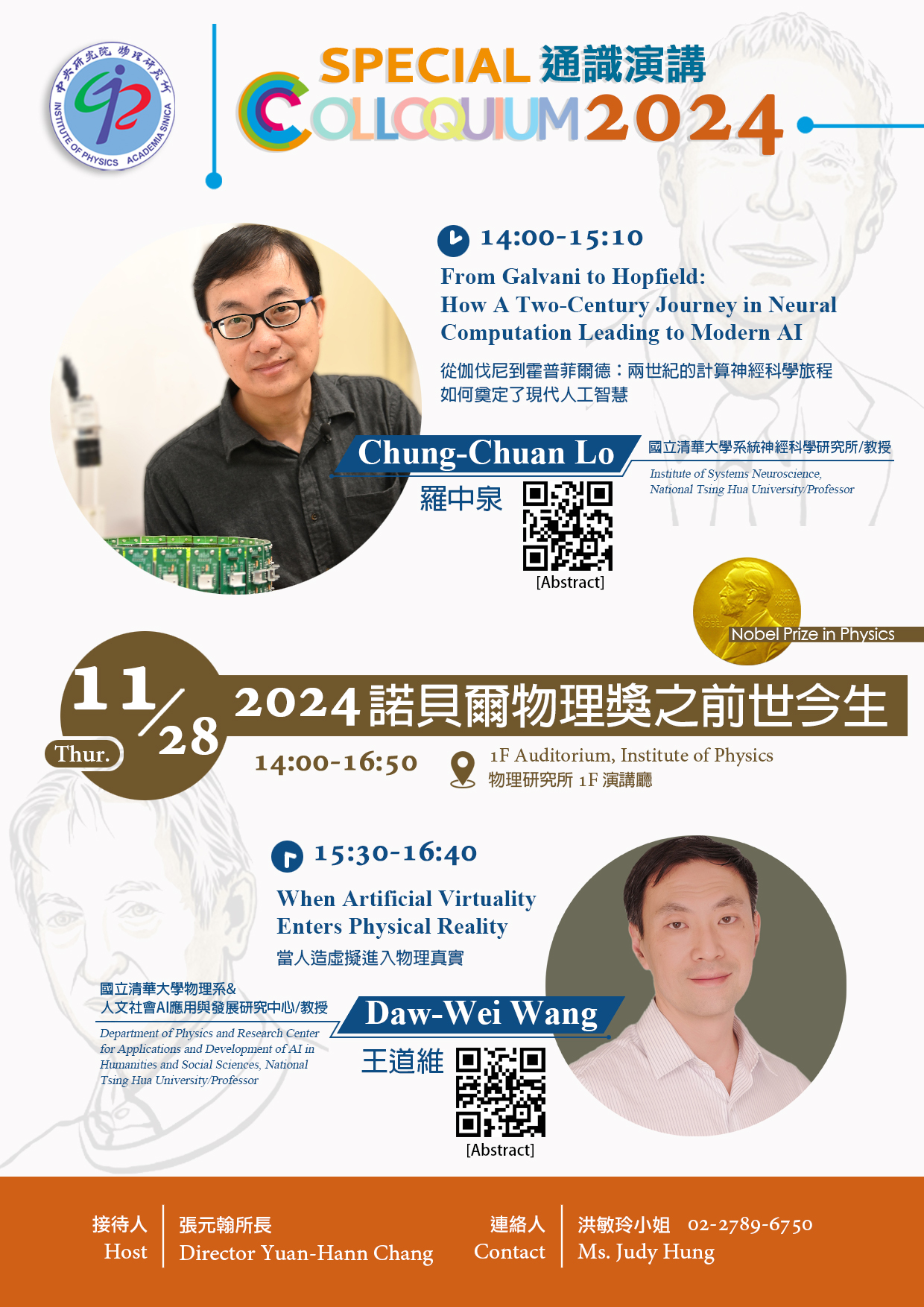- Lectures
- Institute of Physics
- Location
1F, Auditorium, Institute of Physics
- Speaker Name
Prof. Chung-Chuan Lo(NTHU) and Prof. Daw-Wei Wang(NTHU)
- State
Definitive
- Url
【Time】14:00-15:10
【Speaker】Prof. Chung-Chuan Lo (Institute of Systems Neuroscience, National Tsing Hua University)
【Title】From Galvani to Hopfield: How A Two-Century Journey in Neural Computation Leading to Modern AI
【Abstract】Over the past two centuries, our understanding of neural computation has evolved dramatically, laying the foundation for modern artificial intelligence. Beginning with Luigi Galvani's 1780 discovery that nerves transmit electrical signals, this lecture traces key milestones, including the Hodgkin-Huxley model—which earned Alan Hodgkin and Andrew Huxley the 1963 Nobel Prize in Physiology or Medicine—for mathematically describing how neurons generate and propagate action potentials.
We will then explore the evolution from individual neurons to neural networks, introducing several key theories and models and highlighting the Hopfield network, a groundbreaking contribution of John J. Hopfield, who shared the 2024 Nobel Prize in Physics with Geoffrey Hinton. This lecture celebrates this remarkable journey, underscoring the pivotal developments that have led to today's artificial intelligence and honoring the pioneers recognized by this year's Nobel Prize.
【Time】15:30-16:40
【Speaker】Prof. Daw-Wei Wang (Department of Physics and Research Center for Applications and Development of AI in Humanities and Social Sciences, National Tsing Hua University)
【Title】When Artificial Virtuality Enters Physical Reality
【Abstract】The 2024 Nobel Prize in Physics was awarded to Geoffrey Hinton, a pioneer of AI, sparking significant controversy. Although Hinton is not a physicist, the neural network technology he advanced has achieved remarkable success across various fields, leading machine learning—originally a branch of computer science—to be unexpectedly recognized as a contribution to physics research. In this talk, I will begin with a brief overview of Hinton's educational and research journey, explaining the essence of neural networks using fundamental physics concepts. I will then explore how these networks evolved into deep learning, now the most successful algorithm in artificial intelligence. After introducing several examples of AI applications in physics research, I will discuss the profound impact—and potential risks—of AI on the humanities and social sciences. This context helps explain why Hinton left Google in 2023, expressed regret over his role in creating deep learning, and began advocating for a slowdown in AI development to safeguard humanity. As one of the most interdisciplinary and disruptive technologies in human history, AI’s recognition with a Nobel Prize in Physics clearly represents a paradigmatic milestone in the history of science.









 Home
Home

